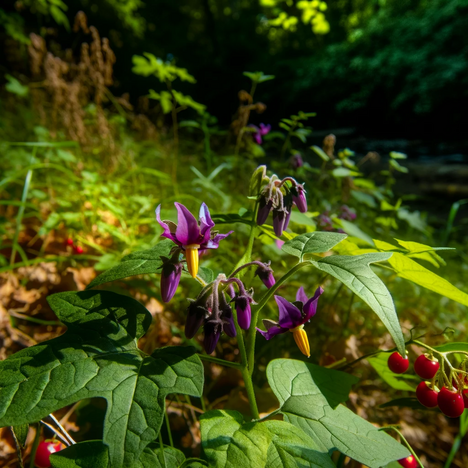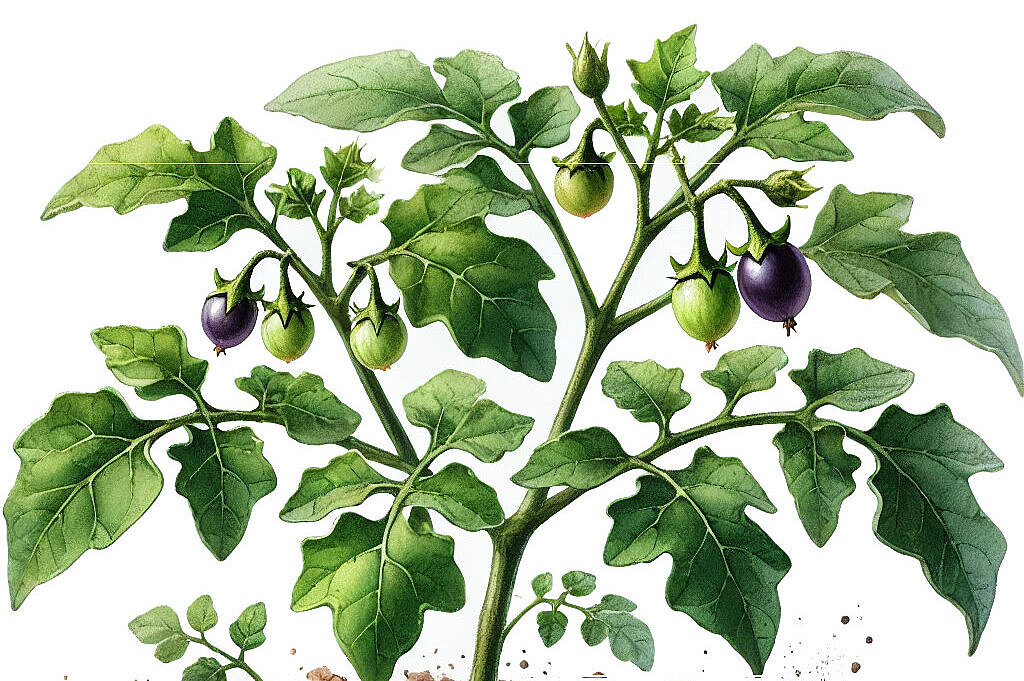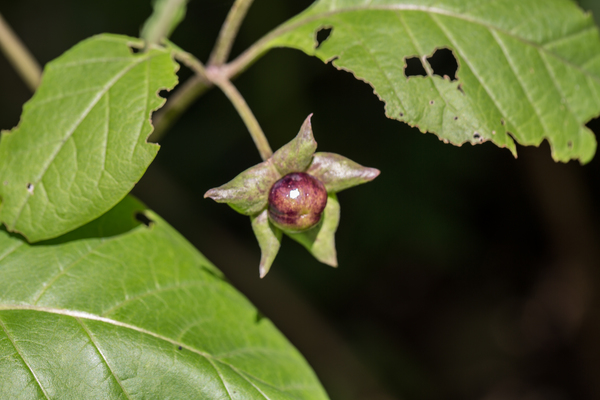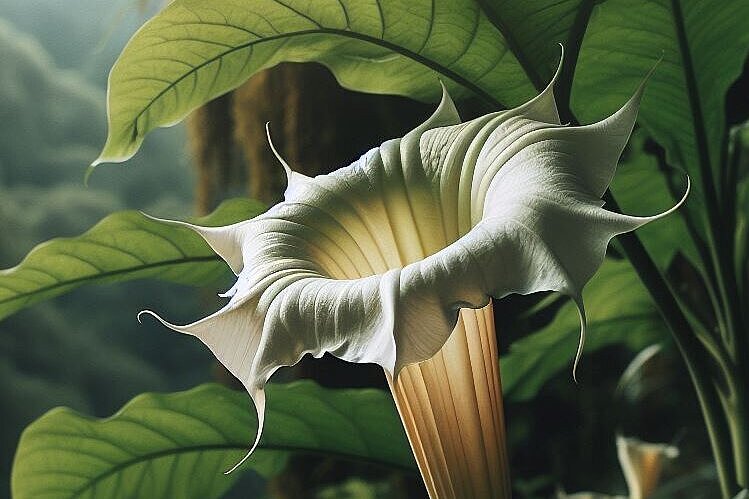Bittersweet nightshade

What is bittersweet nightshade?
Bittersweet nightshade is a perennial climbing plant that belongs to the nightshade family. It is characterized by its heart-shaped leaves and eye-catching purple flowers, followed by bright red or sometimes yellow berries. Despite its beauty, bittersweet nightshade contains alkaloids, particularly solanine, which can be toxic to both humans and animals if ingested.
Benefits: The medicinal use of bittersweet nightshade
Traditional medicine
In traditional medicine, bittersweet nightshade has been used to treat a variety of ailments, from skin conditions to rheumatic pain. Its anti-inflammatory and pain-relieving properties have been appreciated, however the scientific evidence to support these uses is limited.
Possible anti-inflammatory effect
Some studies suggest that extracts of bittersweet nightshade may have anti-inflammatory properties. This could theoretically be useful in treating skin problems or mild inflammation in dogs, provided it is used safely and under veterinary supervision.
Disadvantages: The risks for dogs
Toxicity
Bittersweet nightshade is poisonous to dogs and other pets. Ingestion of the plant, especially the berries, can lead to symptoms of poisoning, including vomiting, diarrhea, lethargy, respiratory distress and, in severe cases, even death.
Danger of overdose
While certain parts of the plant could potentially have medicinal benefits in very small doses, the risk of overdose and associated toxic effects is high. Determining the exact dosage is difficult and risky.
Do not self-medicate
Due to its high toxicity, bittersweet nightshade should never be used without the guidance of an experienced veterinarian. Self-medication with plants or herbs poses serious risks to the dog's health.
The bittersweet nightshade is fascinating due to its historical use in medicine and its striking appearance. For dogs, however, the risks clearly outweigh the potential benefits. The plant's toxic properties can cause serious health problems, and there are safer alternatives to treat the ailments for which bittersweet nightshade has traditionally been used. Dog owners should always be cautious and ensure that their pets do not have access to this or other potentially poisonous plants. If in doubt or if poisoning is suspected, it is essential to seek veterinary help immediately. The health and welfare of our best friend should always come first, which means enjoying the beauty of bittersweet nightshade from afar without underestimating the risks it poses.
Properties 11
Are you looking for other ingredients with a specific property?
Just click on them to find more.
If you notice any signs of hypersensitivity or poisoning in your dog, you should see your vet immediately. We are not a substitute for a vet, but we try to be as accurate as possible. Every dog reacts differently and we recommend you get a second opinion or consult your vet if in doubt.
Stay healthy and take good care of your four-legged friend!😊
Similar to Bittersweet nightshade
Black nightshade is a widespread plant of the Solanaceae family that is both used and feared in many cultures. It can thrive in a variety of environments, from gardens to fields and forests. The...
Belladonna (Atropa belladonna) is a perennial shrub from the nightshade family. It can grow up to two meters high and has egg-shaped leaves and bell-shaped flowers, which are brown-purple on the...
Mandrake (Mandragora) is a genus in the nightshade family (Solanaceae) known for its deep roots in mythology and medical history. The plant is characterized by its large, dark green leaves,...
Angel's trumpets belong to the nightshade family (Solanaceae) and are mainly native to South America. They are characterized by their large, trumpet-shaped flowers, which can shine in various colors...



